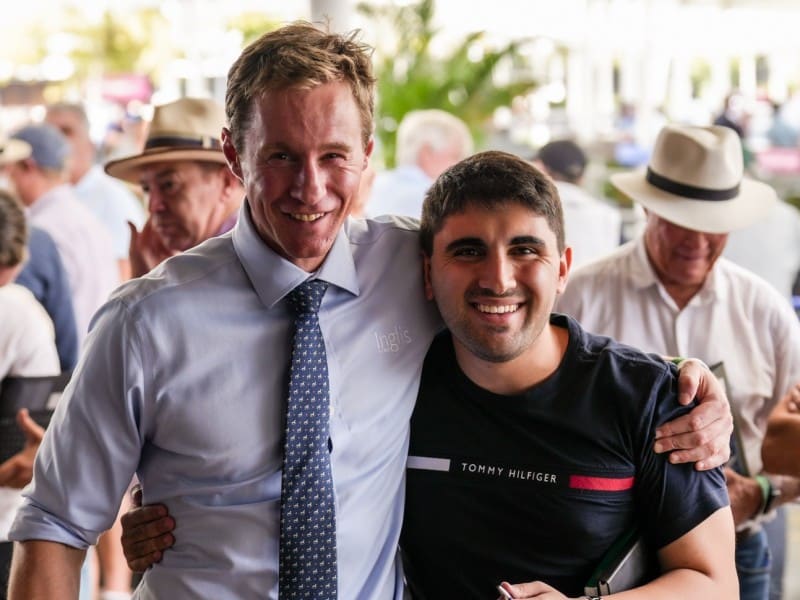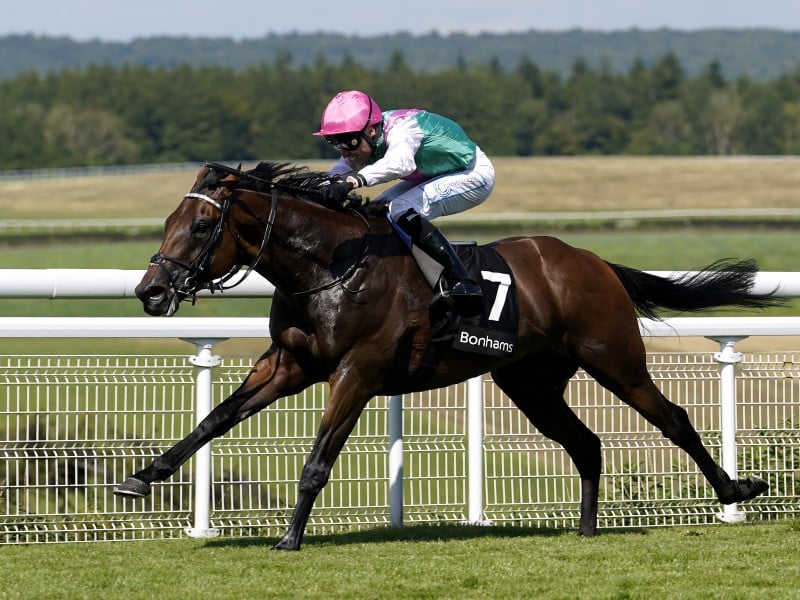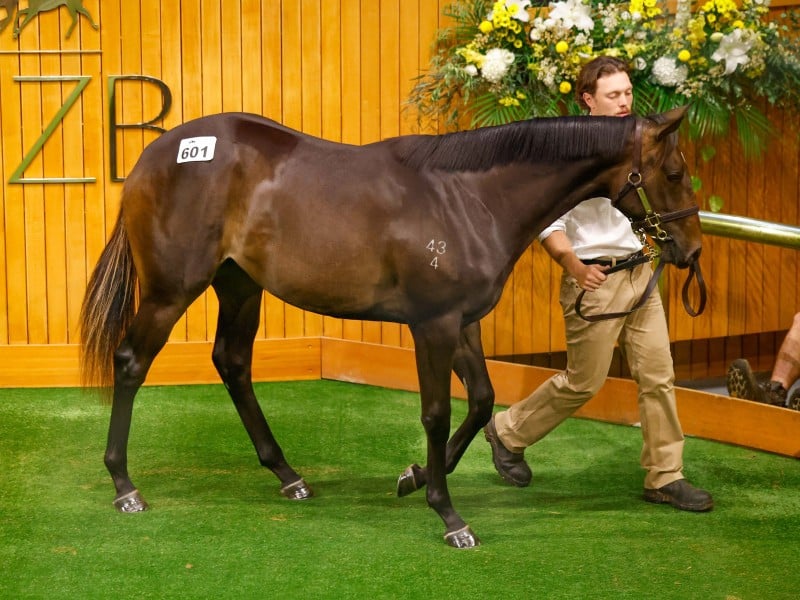Yulong rising – How an emerging global behemoth is shaking-up Australia’s thoroughbred industry
For Australia’s breeding and racing fraternity, 2023 must rank as the ‘year of the mare’.
Due to Yulong Investments’ relentless pursuit of the country’s finest broodmares and potential ‘mothers-to-be’ for its burgeoning thoroughbred portfolio, yearlings and stallions lost the limelight as the company paid often eye-watering sums for their female counterparts.
At time of writing, Yulong, under its different entities, has acquired 145 mares at public auction in Australia this year for $59 million. This includes $33.5 million for 60 at the Magic Millions National Broodmare Sale in May – securing Forbidden Love, a three-time Group 1 winner, for $4.1 million.
Earlier this month, just days ahead of Duais running second in the G1 Champions Stakes, it was also announced it had privately purchased the gifted mare. This spending spree could continue in the coming weeks, at the Tattersalls December Mare Sale in the UK – where it acquired Alcohol Free for $10.5 million last year.
While these figures are constantly updating, a best estimation that, since 2017, owner Yuesheng Zhang has spent over $200 million on 700 horses globally, most of them broodmares. Given this scale of operation and its international links – especially to Irish, Japanese and (the re-emerging) Chinese markets – it’s timely to consider the impact it could have in Australia.
Most industry insiders who spoke to The Straight are guardedly optimistic. While there’s no ‘Yulong blueprint’ to study, there’s consensus that a reshaping of the thoroughbred auction market could be on the cards, given its breeding numbers. A major private training stable, along the lines of Godolphin/ Darley, is also mooted as a possibility.
Zhang, the remarkably low-profile Chinese billionaire at the heart of this juggernaut, hails from Shen Xi, a small farming village in Inner Mongolia, where he looked after the family’s livestock and developed an affinity with their herd of horses.
He left home as a teenager, drove taxis and worked as a miner before starting his own coal mining and transportation company. He bought his first mare, Yulong Bao Jun, in Ireland in 2010. The story goes that, on his first Australian visit in 2013, he was at Flemington when Fiorente won the Melbourne Cup…and fell in love with Australian racing.
He soon bought his first Victorian farm (formerly Limerick Lane) and now owns more than 3000 acres in Victoria’s ‘north-east corridor’, having added another three horse properties to Yulong’s base.
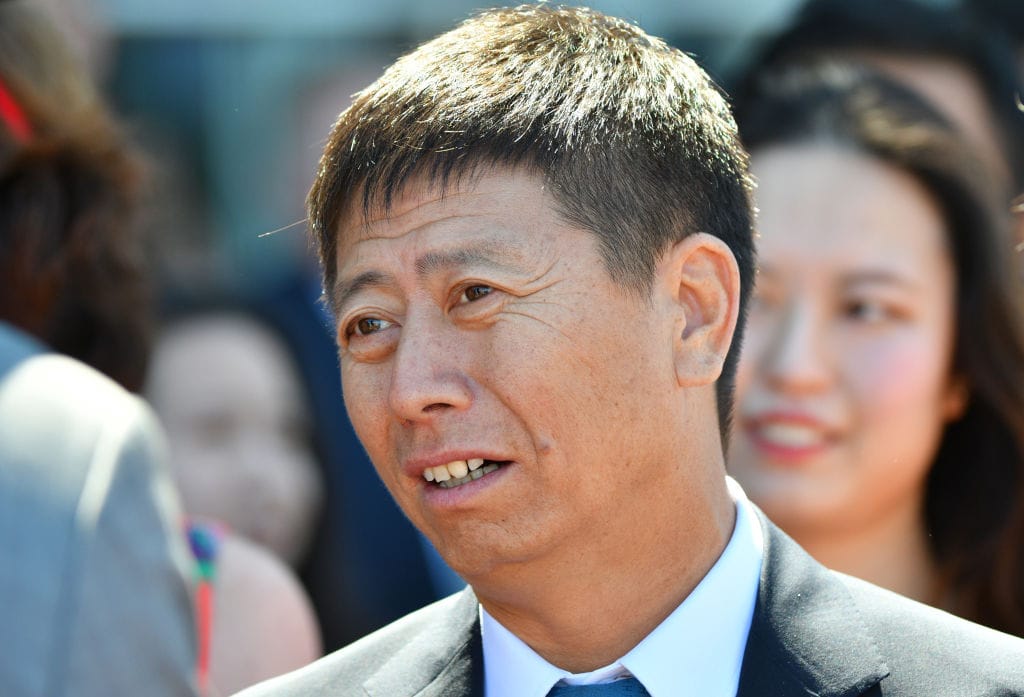
Ten years on from that famous Cup victory, Zhang has some 600 mares in his care, close to five per cent of Australia’s active broodmare band. This year, Yulong Stud also stood six young stallions and flagship sire Written Tycoon.
This ascendency has been largely welcomed nationally, especially by broodmare owners and auction houses.
Yulong’s cash injection has helped the country’s thoroughbred auction market stay buoyant as other jurisdictions weather ‘flattening’ returns. But will it continue to have a positive impact?
Many in Victoria say Yulong’s presence in Nagambie has already reshaped the breeding precinct physically and hope it could challenge the dominance of the NSW Hunter Valley as Australia’s ‘horse capital’.
“This is real money and a real passion,” says Adam Sangster, owner of neighbouring Swettenham Stud. “And Mr Zhang surrounds himself (with) some pretty good people, not just locally but globally.”
“As an industry, this is sizeable investment, as what Sheikh Mohammed and his brother Hamdan did in the late ‘70s, early ‘80s. I don’t know what their long-term business plan is, but at the moment it’s (about) gathering the greatest band of broodmares. We thank God our industry manages to attract someone to take the place of the others who are leaving it.”
Shelley Hancox, one of Australia’s prominent bloodstock syndicators, is pragmatic.
“If Yulong last for a decent length of time, then it’s probably a very good thing for the industry. But if they’re like so many others who’ve come in, created large studs, stood large numbers of stallions, then started pumping yearlings into the sales and then gone belly-up, then it’s not a good thing,” she says.
“The prime example in recent times is probably Nathan Tinkler.”
Sean Dingwall, director of Victorian-based Blue Gum Farm, is also upbeat. “We’re going to see a lot of very, very positive results – race results – come out of Victoria, because of the quality of the mares they’re buying and the quality of stock they’re buying all over the world. So I think it only helps Victoria,” he says. “They’re putting the Victorian thoroughbred industry into a new perspective.”
“We thank God our industry manages to attract someone to take the place of the others who are leaving it” – Adam Sangster
While many share this sentiment, there’s increasing focus on how Yulong’s involvement might affect other aspects of the industry. Will the magnitude of its buying and selling power drive out smaller owners, breeders and trainers?
“It’s only a good thing if someone can go with them,” insists an industry veteran, who asked to remain anonymous. “There are two ways they can go, and both are catastrophic for our industry. They could be ‘all conquering’ and then they are the industry, they are solely the Stud Book. Or they could capitulate and end up flooding it all back into the market. Either way, for the next generation, I’m worried.”
Conversely, Tom Reilly, chief executive of Thoroughbred Breeders Australia, sees Yulong’s presence in Australia as a significant net positive for the local industry.
“I think Yulong’s presence here is and will be a good thing: if you spend anytime with Mr Zhang you realise how passionate he is, but he is passionate about doing it here in Australia. He is going overseas and buying mares and stallions to bring back here and he’s as good a chance of finding the next Danehill as anyone else,” Reilly said.
Mick Sharkie, Leneva Park’s general manager, agrees. “I don’t think they’ll get to the point where they self-destruct or blow up the industry, because that serves them absolutely no benefit. I think we have to trust (that) Mr Zhang and the people he employs are conscious of the broader impact, potentially, on the industry. And they won’t want to choke it.”
He describes Yulong as been “unwavering” in purchasing Australian mares. “They clearly have a desire to produce the best quality stock that they can. Now, whether that’s to race or to sell, that’s entirely up to them, but they’re going in at a high-level acquisition ‘point-of-entry’ and I think it’s set tongues wagging for the sheer volume of money they’ve spent,” Sharkie says.
“What probably hasn’t been discussed is the quality in the families they’re buying….the majority of what they’re buying (are) the best families and race mares in Australia, as well as the best families in the Stud Book.”
Reilly noted that the extension of this is the global strategic approach Yulong are taking to their breeding.
“Mr Zhang is also an innovator and that’s exciting for the Australian industry. He is breeding a lot of horses to northern hemisphere time, foaling them down, raising them and then sending them up to Europe when they’re ready for training,” he said.
“He did this with a daughter of I Am Invincible, Lady Hamana, that won a listed race at Sandown in June and we haven’t seen anyone do that since Robert Sangster in the 90s. We know Australian sprinters are the best in the world, so if he can raise a few here but then get them running as two year-olds in Europe that has the potential to really drive interest in our industry.”
No doubt Yulong’s executive appreciates this. Sam Fairgray, the company’s chief operating officer – and Yuesheng Zhang’s media ‘voice’ – is widely-respected in breeding and racing circles and much liked by staff. Earlier this month, he told Racing Post’s Good Morning Bloodstock that “Mr Zhang has observed the industry and seen how people have been successful, and now he’s adopting those tactics on his own farm.”
Vin Cox, who takes up the position of general manager of Yulong Investments’ international operations from early December, is also a bloodstock expert with impeccable credentials, which is why his resignation from Godolphin Australia has sparked sharper speculation about what’s ahead for the business goliath he’s joining.
There’s rising interest in Yulong’s presence at future yearling sales, more as a major seller than buyer. At the first auction at Magic Millions Gold Coast in January, the farm has 43 youngsters in the catalogue, down slightly from 48 last year. Twenty one are listed in the 2024 Inglis Classic in February and it is rumoured to have asked for 100 boxes at the Premier Sale in March.
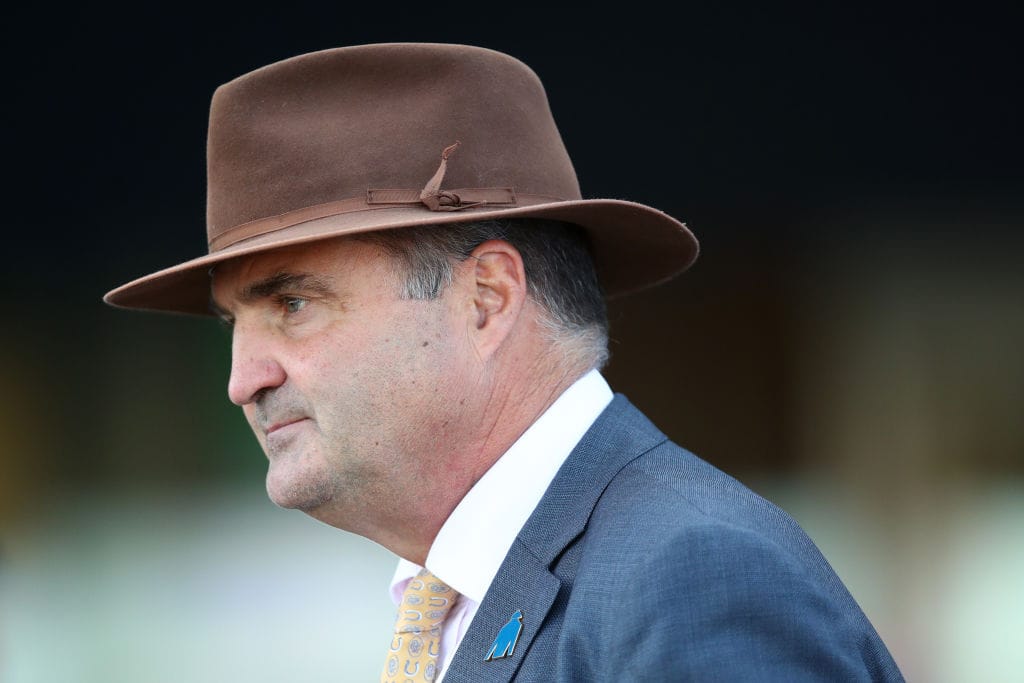
Some industry stalwarts suggest the company might even consider buying an auction house, or a branch of one, to handle its sales. This wouldn’t surprise Hancox.
“Certainly, the immediate way they seem to want to position themselves is (as) yearling sellers,” she says, adding Magic Millions’ supremo Gerry Harvey has honed the model. This year alone, she says, “he offered 210 yearlings at three sales”.
Sean Dingwall concurs. “Gerry Harvey owns Magic Millions, so if Gerry Harvey decided to sell it to Yulong, it makes no difference to us, because it’s just another leviathan owner that owns the business and the rest of us just fit in around it.”
It is understood that Yuesheng Zhang has expressed privately that he has no intention of starting his own sales yet.
Yet, some familiar with Yulong’s ‘next level’ set-up in Nagambie say the infrastructure is already in place for it to hold its own auctions on-site.
Mick Sharkie says the farm’s layout is perfect, if that’s the plan. “I think it would be a fantastic event. If their stallion parades are anything to go by, you could only imagine what a Yulong farm sale, a blue-chip farm sale, would look and feel like. The great thing is it’d be in Victoria, and it’d be a showcase of what Victorian land can produce.”
With the number of Yulong-bred yearlings only set to rise, the question remains on how, logistically, the current sales system accommodates that?
Hancox recalls massive ‘fails’ of past eras, when owners – like Sir Donald Trescowthick and Mike Willesee – took a similar path and stumbled. Like others, she reckons Yulong could continue to sell through Inglis and Magic Millions as well as host ‘showcase’ sales at the farm. ”That would probably be a better spread.” What interests her, too, is how the yearling market will respond to Yulong’s drafts.
“These are horses that are coming on the market which wouldn’t previously have come on the market in such large drafts. And that makes you think ‘well, is the market solid enough to sustain all these extra horses’?”
Another challenge is how that bold broodmare strategy then blends in with Yulong’s stallion strategy. Could the quality and quantity of Yulong’s broodmare band put others off utilising their stallions?
In the case of those horses retained by Mr Zhang, is a private training stable, along the lines of Godolphin/ Darley, another possibility?
“It’s certainly not a stretch to think that,” Hancox says. “(They’re) certainly going to retain quite a lot of fillies to race, to maybe go back into the broodmare band. So, at some stage, it may be that they decide having a private trainer might be a more cost-effective way of doing it.”
At this point, most maintain that lack of staffing is the most prevalent threat to the industry. “That is the biggest issue and I think you’ll find a lot of studs around Euroa are getting increasingly worried,” the bloodstock doyenne says. “Some of their better staff are (being) offered more money by Yulong, so they leave – and good staff are very hard to replace. I’m not quite sure the international working visa system for stud staff that operated pre-Covid (is) actually back operating as it should.”
Blue Gum’s Dingwall goes further. “The staffing issue was a problem long before Yulong arrived,” he says. “In reality, what we should be doing is turning our attention on the Labor Government and the fact they won’t allow the ‘457s’ in, which is what we always relied on.”

